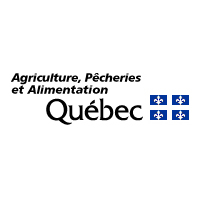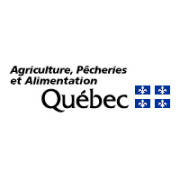Quebec Government Notice: Rabies Risk Management
The Government of Quebec has sent us the following notification and ask that we share with our industry network. This information below can be used to facilitate discussions with clients about precautions to take when caring for dogs from Northern Quebec.
 To people concerned with the adoption of dogs from Northern Québec
To people concerned with the adoption of dogs from Northern Québec
Since 2012, there have been four cases of adopted dogs from Northern Québec developing rabies in the South (Montréal, Terrebonne, State of New York). The dogs began to show signs of the disease more than three weeks after their transfer. It is important to inform people who are exposed to a dog from Northern Québec about the rabies risk the animal poses. These people must be alert regarding this fatal disease that can be transmitted to humans.
Rabies risk management
The adoption of northern dogs is often considered a solution to the problem of canine overpopulation in the North. However, this practice is not without its risks since rabies is endemic to Northern Québec. In this region of Québec, the disease affects foxes in particular, but it may also infect dogs which have been in contact with rabies-carrying foxes. Between 2008 and 2018, an average of 4 to 5 foxes or dogs per year were diagnosed with rabies in this region. Rabies may affect all mammals, including human beings. It is the most lethal of all diseases that are transmissible to humans because it is fatal from the moment symptoms appear. It spreads by means of contact between the saliva of an infected animal and an open wound (e.g. a bite) or a mucous membrane (e.g. in the nose, eyes or mouth). The virus may be transmitted through a rabid animal’s saliva up to ten days before the onset of the first signs of rabies. In dogs, the rabies incubation period (time delay between the animal’s infection and the appearance of symptoms) may be up to six months long. During this period, the animal appears healthy. There are no tests for determining whether the animal is infected. Rabies vaccinations are ineffective for animals that are already infected. If you are still considering adopting a dog from Northern Québec, take the following precautions.
For a six-month period
• Keep the number of people or animals in contact with your animal to a minimum. If the animal has symptoms, everyone who has had contact with it will have to undergo costly and onerous public health interventions.
• Keep a log containing contact information about the people and animals exposed to your dog during this period. Also note the contact dates.
• Have household pets vaccinated against rabies at least 30 days before the new dog arrives.
• Keep your animal on a leash when you take it out and do not let it off the leash unsupervised any place where it can run away. Avoid any contact with people or with other animals during
See a veterinarian immediately and isolate your animal if it shows any signs of the disease, for example:
- Change in behaviour (aggressiveness or sudden fatigue without reason)
- Weakness or paralysis of the limbs and staggering
- Lowered head, slack jaw or abnormal facial expression
- Excessive salivation
- Unusual vocal expression
- Repetitive biting for no reason
- Decreased appetite or water intake.
When you make your appointment with the veterinarian, specify that your animal comes from Northern Québec.
At all times, if your animal bites or scratches someone, clean the wound with soap and water for ten minutes even if it seems minor, and call Info-Santé (811) or see a health professional.
For more information, go to www.mapaq.gouv.qc.ca/rage.



